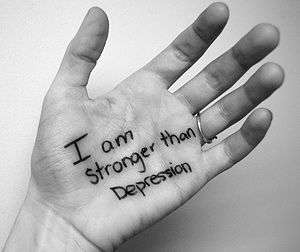Best of 2013: Depression Quest – A Journey
by Ian
First Published: August 6, 2013
Voted For By: Adam, Chris, Markuz
Reason(s) for Vote:
It’s a discussion of the kind of game that I don’t think can really be done justice by somebody who hasn’t been through some of the experiences it depicts. Without that context it could easy descend into a discussion of game mechanics or equally frivolous details, but this article had a personal touch that really helped to effectively convey just how powerful an experience playing the game can be. It’s something you don’t often see in games writing, in part because so many games portray fantastical settings far removed from any possible author experience, but I always welcome it when I find it. – Adam
Not only is this a highly informative article for people both suffering with depression and with a lack of knowledge about it, it’s also a personal article for the writer. Can’t have been easy for Ian to revisit a period in his life that was this difficult and yet, he writes a heartfelt article intended to give hope and shed light. Bravo sir! – Chris
I don’t understand depression, and doubt I ever will. I have more pressures on me than most people could even attempt to comprehend yet, rather than getting depressed over it, I just get on with it and do what I can to change things. I see people with depression spiralling out of control because they’ve run out of Post-It notes or bought the wrong type of pasta… and I just don’t get it. Reading this may not have suddenly flicked on that “Oh rigggggght, I get it!” light, but it made me realise that there’s more to it than it just being people who are too wrapped up in the negative to find a positive. It was a great article, and one of my personal favourites from 2013. – Markuz
————————————————————————————————————————————————————–
 It’s quite tricky to know where to start with Depression Quest. At its heart, it’s a cleverly made ‘choose your own story’ type game. You are presented with a scenario, and given a set of options to choose in response. You can only choose one, which leads you to the next scenario based on your choice, which in turn was influenced by the chooses that precede it. It’s almost a very clever flow chart.
It’s quite tricky to know where to start with Depression Quest. At its heart, it’s a cleverly made ‘choose your own story’ type game. You are presented with a scenario, and given a set of options to choose in response. You can only choose one, which leads you to the next scenario based on your choice, which in turn was influenced by the chooses that precede it. It’s almost a very clever flow chart.
This description does Depression Quest an incredible disservice.
This game is a personal journey through the mind of a depressed person. As someone that has suffered from depression in the past, and still struggles with some of the demons that come from it, the game resonated with me more deeply than any other interactive experience I’ve ever had – and this from the guy that cried at the end of Final Fantasy X. Yep. That guy.
Created by independent game maker Zoe Quinn, the game ‘aims to show other sufferers of depression that they are not alone in their feelings, and to illustrate to people who may not understand the illness the depths of what it can do to people.’ From a personal level, I believe that the game entirely achieves this aim.
Without wishing to go in to too much depth – I thoroughly recommend that you play for yourself and see – Depression Quest really nails the feeling of living with depression. I’d go as far as saying it’s a landmark for emotional connections in interactive media. I’m not too proud to admit that the game brought many feelings back to the surface that I thought had gone for good, leaving me close to tears by the time I’d reached an end. By channeling my own experience I’d managed to come through the depths of depression in the game to see that things aren’t so bad – but there are plenty of others that haven’t been so lucky, both in the game and in life.
 A clever device used in the game is the blocking off of some options based on your choices in previous scenarios. I’ve been asked by a friend previously what depression is like, and my response to them was simply to ask them to play this game. Their first question was why they couldn’t choose the option that made most sense to them on a particular scenario. This is where it’s so clever – for someone with depression, sometimes the ‘right’ answer just doesn’t seem viable. Sometimes you can’t just tell someone how you feel. Sometimes you can’t just get up and go to work and act like everything is ok, and Depression Quest demonstrates this masterfully. It channels you down the train of thought of a depressed person, quickly closing avenues off to you – as time goes on, you have fewer and fewer ways to ‘win’.
A clever device used in the game is the blocking off of some options based on your choices in previous scenarios. I’ve been asked by a friend previously what depression is like, and my response to them was simply to ask them to play this game. Their first question was why they couldn’t choose the option that made most sense to them on a particular scenario. This is where it’s so clever – for someone with depression, sometimes the ‘right’ answer just doesn’t seem viable. Sometimes you can’t just tell someone how you feel. Sometimes you can’t just get up and go to work and act like everything is ok, and Depression Quest demonstrates this masterfully. It channels you down the train of thought of a depressed person, quickly closing avenues off to you – as time goes on, you have fewer and fewer ways to ‘win’.
The writing is superb. The way it frames the scenarios alongside ‘your’ way of thinking. The opening gives you a background and fills in your life – it tells you about your girlfriend, your friends, your family and your day job. The first few scenarios set up your current standing in life – you’re struggling for motivation with a personal project, and can’t stand work. Some progress indicators at the bottom of the screen constantly remind you of your current mental state and well-being.
Far from being a ‘game device’, these indicators actually serve as a parallel for the very real sensation of always being acutely aware of how you are when you are depressed. In the game, as in life, you can’t immediately have any impact on these statuses – they simply sit there telling you how it is. The starting phrase is ‘you are very depressed. You spend a large amount of time sleeping, hating yourself, and have very little energy or motivation.’ It takes a lot of time and effort to make a change to this, and if you’re not careful it can easily become worse. In fact, it’s often made a lot worse before it can be better, in yet another parallel for life.
As I said, this is a pretty personal piece for me. I’m bringing up a lot of memories and feelings playing and writing about Depression Quest but the most glowing recommendation that I can give it is that none of that stops me from wanting to do this. As the game’s descriptions states, it really does help sufferers know that they’re not alone – a prevalent thought amongst sufferers, the feeling of being alone and isolated – and it gives at least a small insight to people that otherwise may have no knowledge of the condition.
 Please, go and play it. It’ll take half an hour of your life, but the experience that it gives you could be the difference between being the friend that understands and being the friend that alienates. I’ve honestly never played anything that hits the spot so succinctly with its chosen theme, nor anything that’s ever resonated so deeply at an emotional level.
Please, go and play it. It’ll take half an hour of your life, but the experience that it gives you could be the difference between being the friend that understands and being the friend that alienates. I’ve honestly never played anything that hits the spot so succinctly with its chosen theme, nor anything that’s ever resonated so deeply at an emotional level.
To anyone that is currently struggling with depression, I’d still recommend playing, but don’t be surprised if you need to close it down before completing. Depression Quest can cut to the core and expose raw feelings. Ultimately, though, it shows us that we’re not alone and that we can get through it – and that really is the best legacy this game can have.
You can play Depression Quest for free at http://www.depressionquest.com/
Last five articles by Ian
- Shooting Stars - Review
- Sora - Review
- Early Access - Epistory, Ironkraft, and Zombasite
- 1849 - Preview and Interview
- Diablo III: Reaper of Souls - Review





















There are no comments, yet.
Why don’t you be the first? Come on, you know you want to!